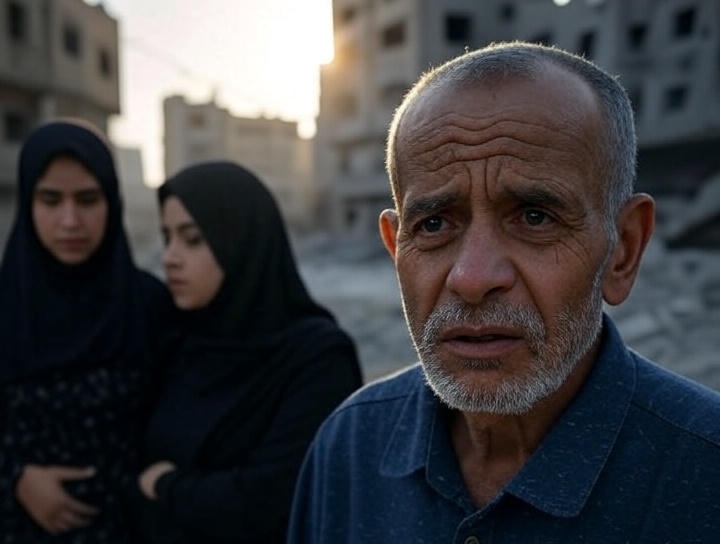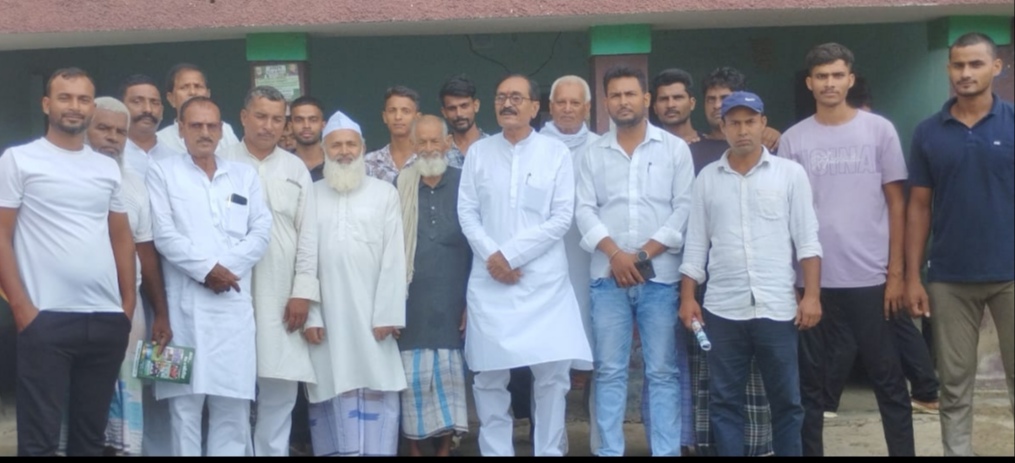 Najmuddin A Farooqi.
Najmuddin A Farooqi.
Alas! After an insurmountable human catastrophe that began on October 27, 2023, the world now stands at the edge of a possible turning point. For nearly twenty months, Israel’s war on Gaza led by Prime Minister Netanyahu and his IDF has ravaged a largely unarmed population, leaving behind devastation of unprecedented scale. Yet, after this prolonged tragedy the dark clouds of destruction appear to be moving away and a dawn of new political possibilities seems to be emerging.
Recent weeks have witnessed a rapid and unprecedented unfolding of events. What was once unimaginable in Middle Eastern politics is now gradually taking shape. The prelude was the subtle shift in the West’s position as France and Saudi Arabia prepared to host a global meeting at the United Nations. Though that summit was postponed following Israel’s military strike on Iran, the momentum for a new regional approach has not been lost. Instead, three new developments each without precedent are now visible.
The Fading Leverage of Hamas
The Hamas leadership and the allied groups insisted so far on strict preconditions for any settlement, international guarantees to end the war, complete Israeli withdrawal from Gaza and rejection of disarmament outside a political process leading to Palestinian statehood. Now the pressures on ground have stripped them of force. The people of Gaza are exhausted. Intensified Israeli strikes on Gaza with threats of its total destruction left the population broken. The disillusioned voices among the Hamas supporters have reached the group’s top political leadership. Hamas’s inability to deliver relief of protection is now painfully evident.
Hamas has lost critical regional and political backing. Arab and Muslim nations that once tolerated or even quietly supported its role now increasingly see it as part of the problem rather than part of the solution. Turkey, historically a reliable political anchor, has grown distant. Egypt has particularly been shrewd by uniting diverse Palestinian factions and securing their endorsement for a cease-fire plan, cornered Hamas leaving it with few escape routes. A leaked recording of senior Fatah reformist Samir Masharawi showed how other factions pressed Hamas to accept the proposal without delay. Meanwhile, Palestinian Authority Prime Minister Mohammed Mustafa’s visit to Cairo further consolidated this shift. In a joint statement with Egypt’s foreign minister, it was declared that any future governance in Gaza would be under the authority of the PA and PLO, explicitly excluding Hamas.
The Arab League’s Break with the Past
Probably the most remarkable change has been at the diplomatic level. Close to two years after Hamas’s October 7 attacks in Israel, Arab leaders have taken an extraordinary step, for the first time, the Arab League acknowledged that Hamas is an obstacle to peace. This is historically pivotal. Arab nations avoided speaking in such plain terms. Some quietly backed Hamas others simply ignored it. Now they have drawn a line. The break with Hamas is not only symbolic it signifies willingness to reimagine the future of the Palestinian cause without any militant dominance.
Inside Israel, the current situation closely resembles that of 2002 when the Arab Peace Initiative offered Israel full normalization with the Arab world in return for peace with the Palestinians. At the time, most Israelis dismissed the proposal, largely because Arab leaders directed their appeals to Washington and the UN rather than engaging directly with Israeli society. Today, however, the Arab world’s commitment to investing in Gaza’s reconstruction and advancing normalization conditioned on the recognition of Palestine as an independent state remains firm and non-negotiable.
Meanwhile, Hamas remains under relentless Israeli assault militarily, while politically it has lost credibility. The hostages, once considered a trump card, no longer carry decisive weight. Mounting military pressure, waning international sympathy and the grim reality of a shattered Gaza are squeezing its options. Netanyahu, however, envisions a different end to the war: for him, it means securing control, creating a buffer zone and appointing a local governing authority acceptable to Israel.
The Struggle for Peace in Israel
While political elites wrestle over Gaza’s future, civil society voices in Israel have begun to demand peace. On Saturday August 23, thousands gathered in Tel Aviv to protest against the war and the worsening hunger in Gaza. Organized by Higher Arab Monitoring Committee and peace organizations like Peace Now and Breaking the Silence, the demonstration was a rare display of Israeli Muslims and Jewish solidarity.
A Narrow Window for Change
Protesters held images of malnourished Palestinian children and banners declaring: “Stop the genocide” and “We won’t die in the service of the settlements.” Tel Aviv city council member Amir Badran captured the spirit of the evening: “No to war, no to starvation, no to destruction. Yes to peace, yes to a comprehensive deal and yes to life. Only together can we end the war and begin a path of justice and equality.”
Though restricted by police threats and limitations, the protest demonstrated that hope persists, even amid despair. It reflected a deep desire among ordinary Israelis and Palestinians to transcend the cycle of destruction and build a shared future.
The hardest step has already been taken. If the Arab leaders seize this moment and step into Israel’s public conversation with clarity and persistence, they might open space for a real debate about the future. For now the Middle East stands at a crossroads. One path leads to continuation of war, isolation and destruction. The other offers a fragile but real chance for peace, reconstruction and a new political horizon. Whether leaders and societies have the courage to choose the latter will determine how history remembers this moment.
By Najmuddin A Farooqi.



